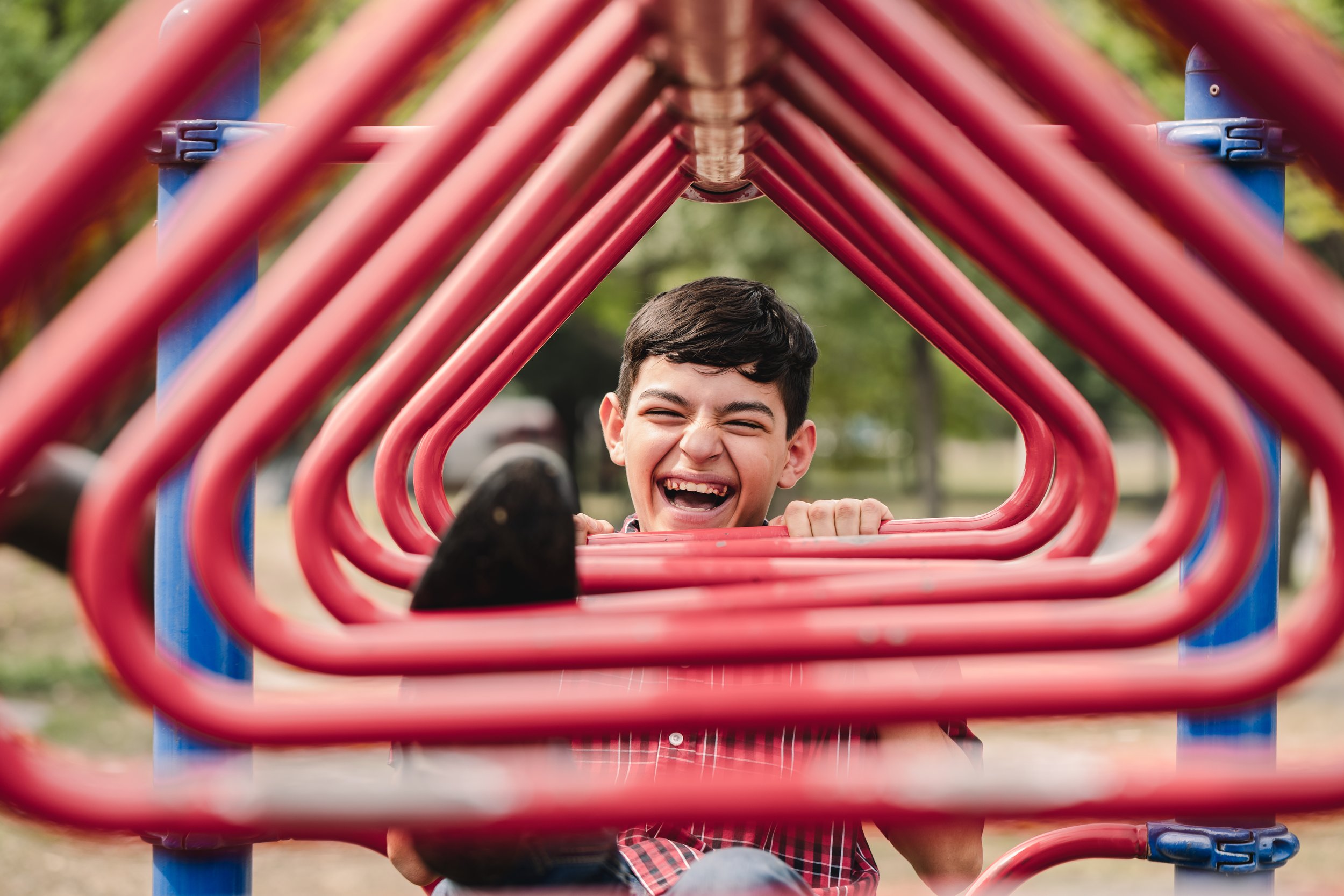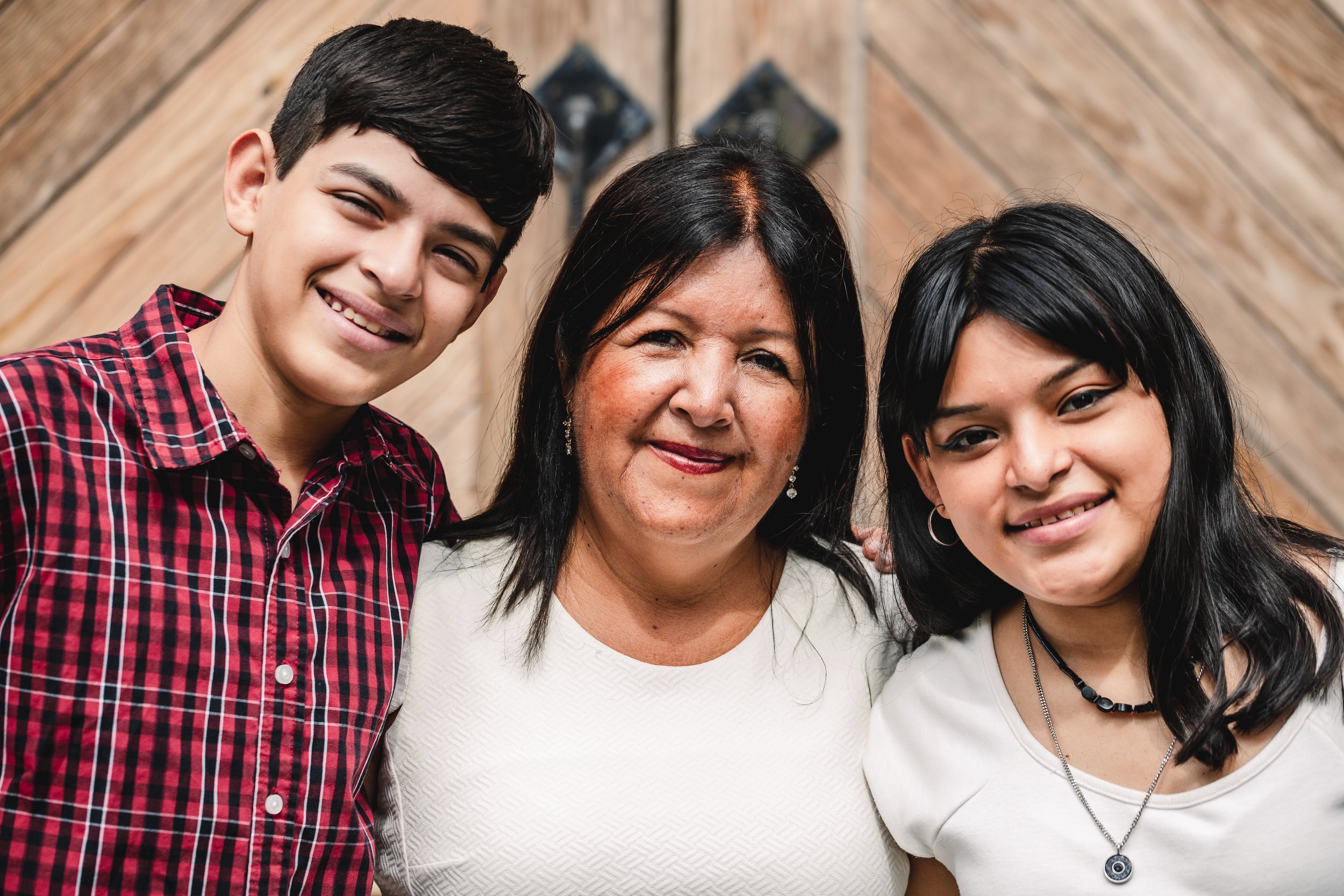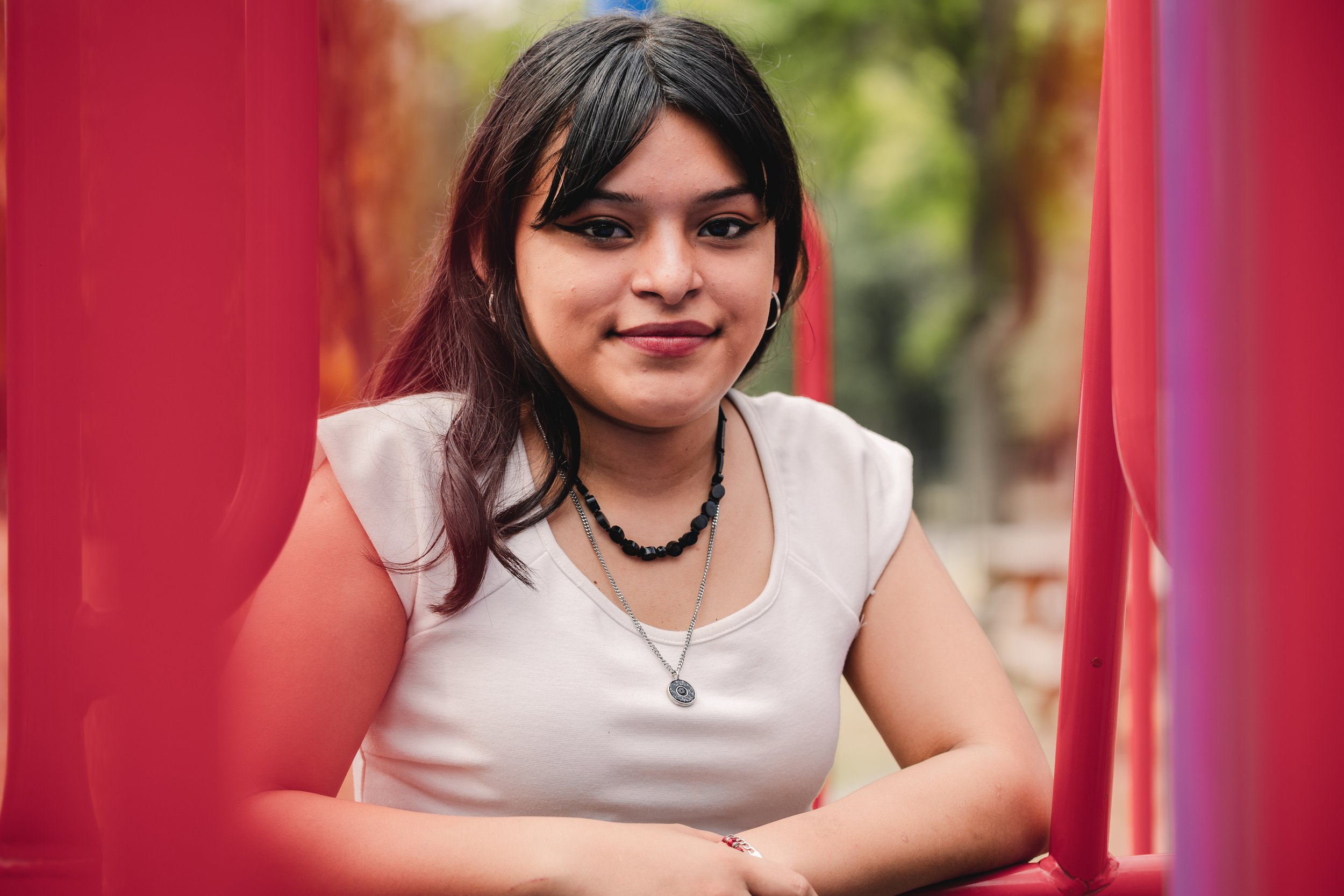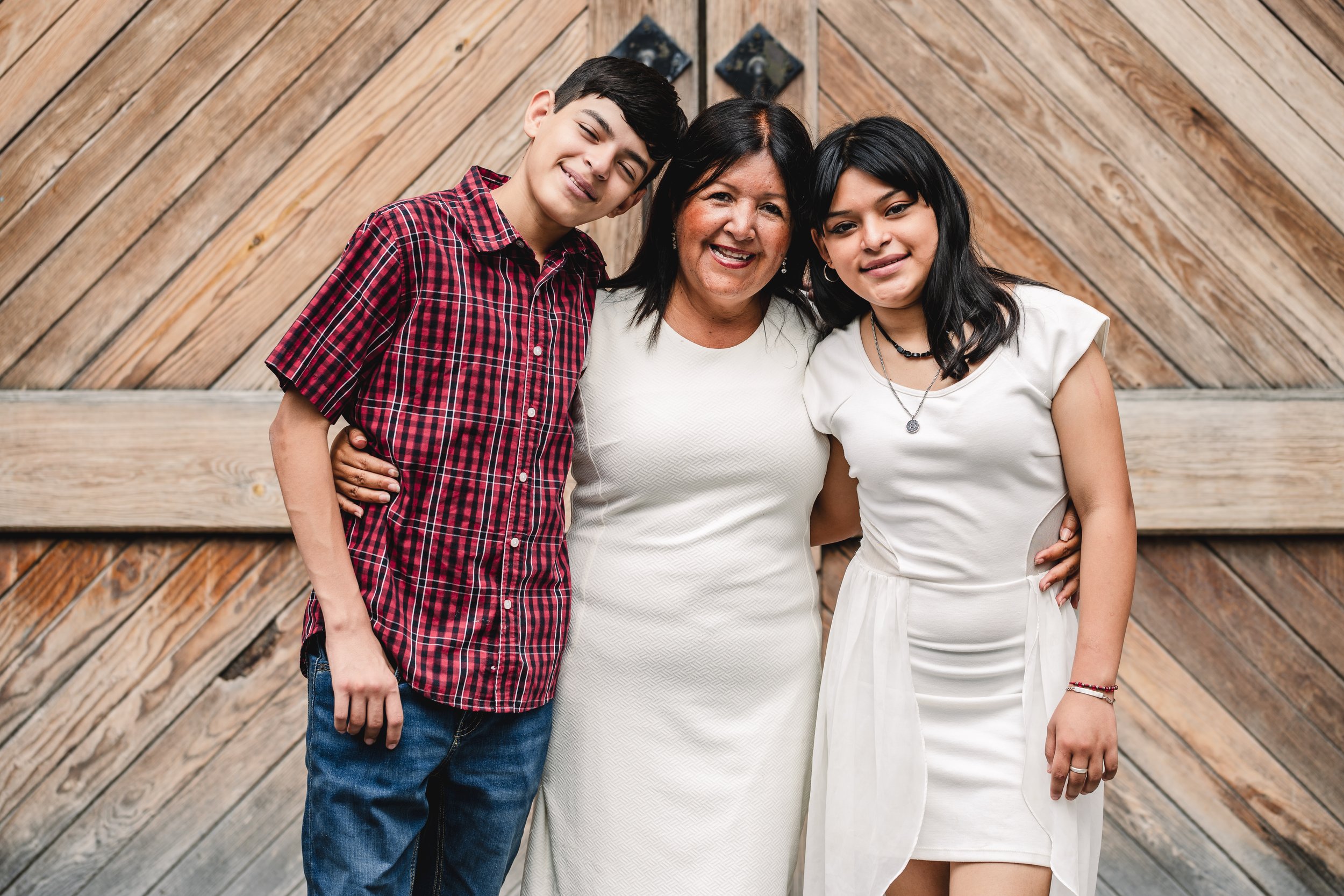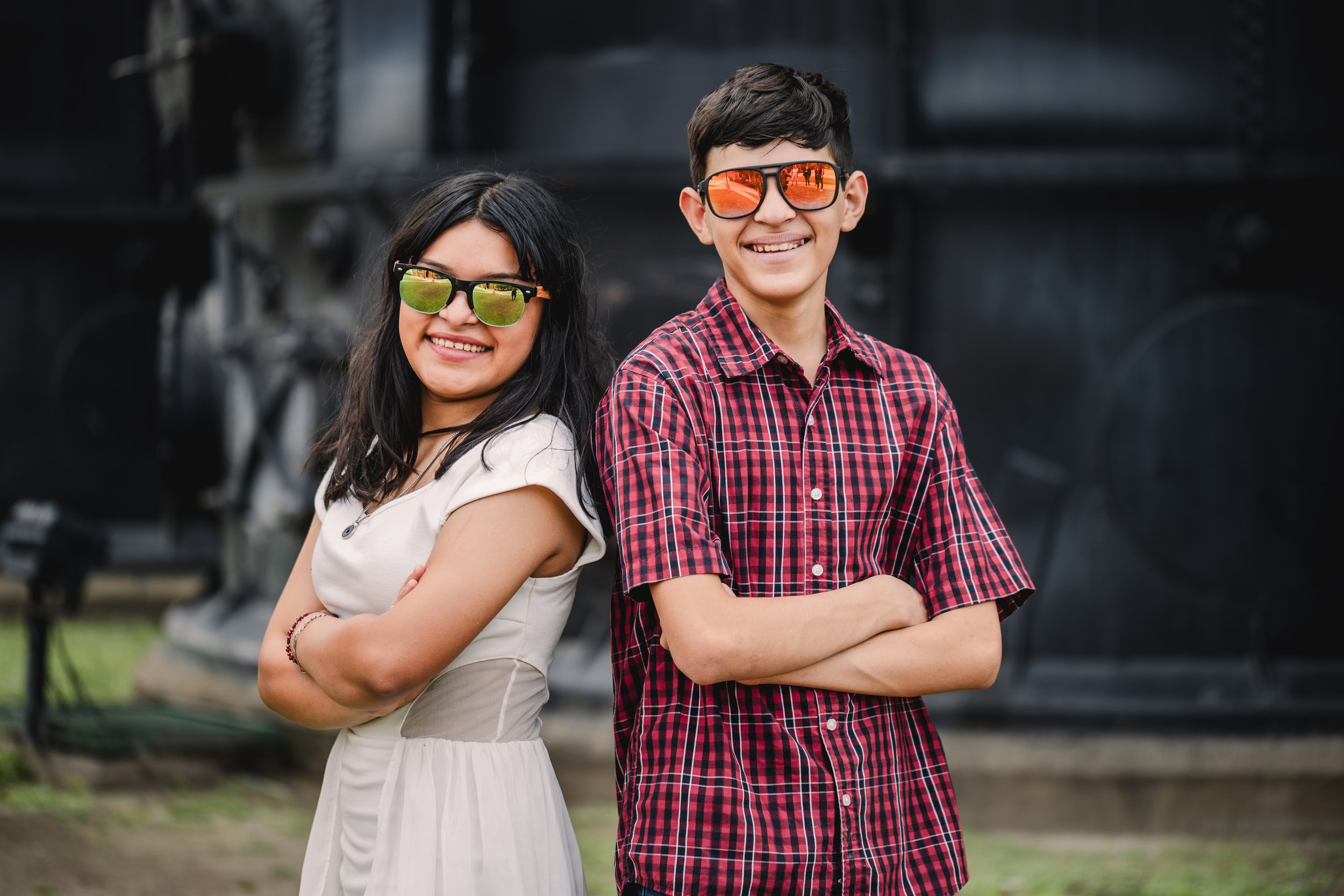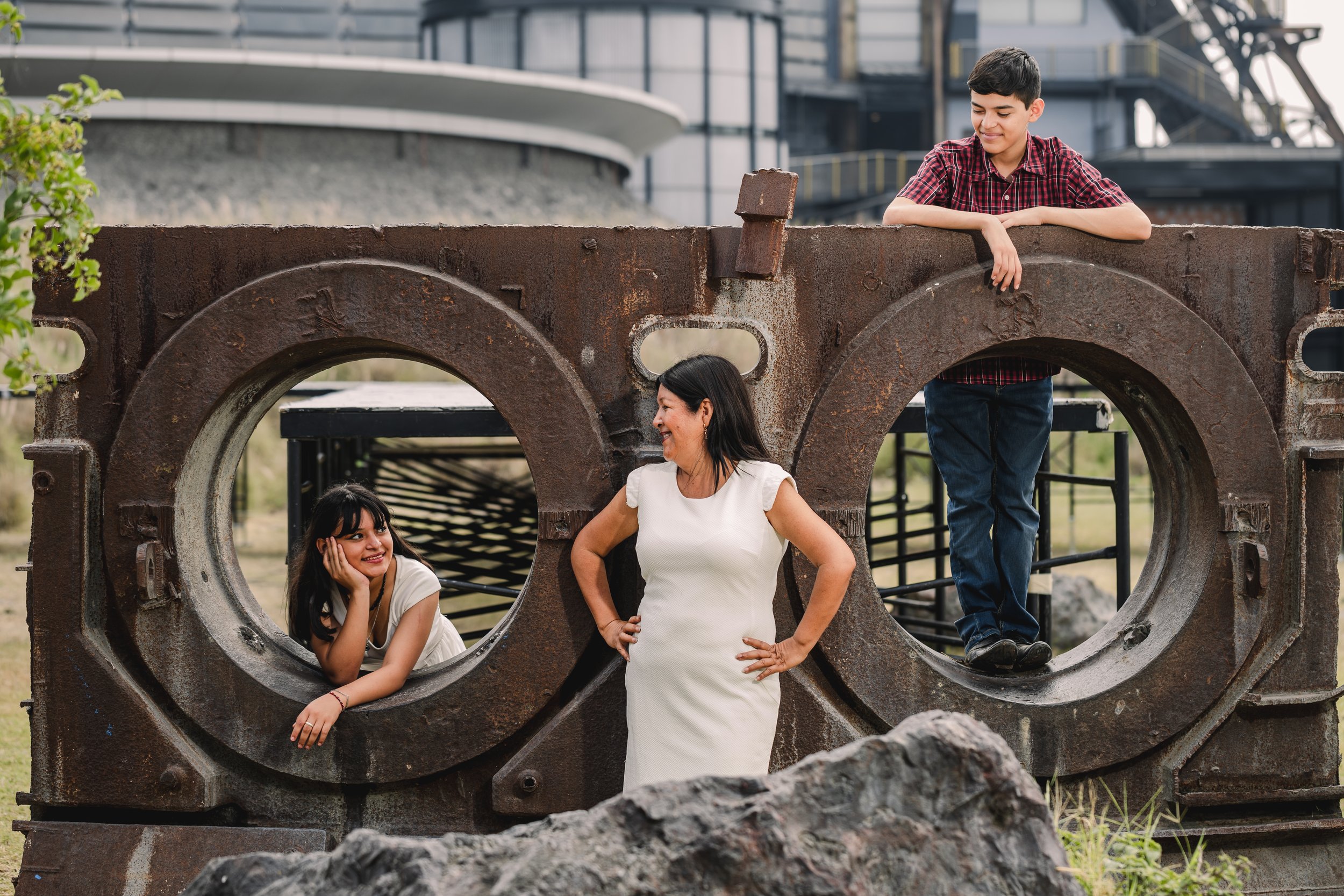Finding Family: The Chavez Siblings’ Story
Note: This blog post was collaboratively written with Stephani Duff of Back2Back.
In April 2023, we announced our expansion into Nuevo León, Mexico. And what an amazing year it’s been! With your support, we joined forces with an experienced partner, Back2Back Mexico, to make a significant difference in the lives of orphaned and vulnerable children.
As we celebrate our first year in Nuevo León, we're so grateful for the incredible impact you're having. Through the Strong Families program, which focuses on reintegration, children are getting out of orphanages and back into their loving families. Thanks to you, 11 children have been reunited with their families, and an additional 43 children have received ongoing, comprehensive support.
Children like Miguel, Juan, and Pamela are growing up in loving families because of you.
The Chavez Siblings’ Story
Juan Chavez, a young boy from Monterrey, Nuevo León, and his older brother Miguel were about to graduate middle school. Miguel was graduating this year, while Juan had one more year to go. And while graduation is a momentous occasion for any child, for these brothers, it meant a big decision had to be made.
You see, the Chavez brothers had spent most of their adolescence in a children’s home, commonly referred to as an orphanage. Their basic needs were met, but institutionalized living didn’t provide opportunity for thriving. And now, as the brothers approached age 15, they were close to aging out of the children’s home. In Nuevo León, 15 is the maximum age a child can live in many private children’s homes, including where the boys lived.
The children’s home recommended Back2Back’s Hope Education Program as the next step for Miguel (and Juan, once he graduated the following year). In this program, they would live in a family-style environment with a married couple, acting as house parents, and a few other boys.
While this environment would equip the boys with the knowledge of how to be part of a family, it wasn’t exactly what the boys wanted. It wasn’t their home or their family. The boys decided to speak their mind to see if there was another option.
“I’d like to be with my own family,” Miguel told staff at the children’s home, who then shared it with our team. “Can I live with my mom?”
Juan followed right after him, asking to be considered for a reintegration one year before it was his turn for his case to be evaluated. Our team was able to take Juan’s request to the government and advocate for his reintegration along with his brother’s.
Finding Family
Although Juan and Miguel had been living in a children’s home, the boys actually didn’t fit the traditional definition of an orphan. Many orphanages around the world have taken on the role of poverty alleviation. Research indicates that approximately 80% of children living in institutional care worldwide actually have family members who could care for them.
Our team at Back2Back wanted to show these brave siblings that their voice would be heard and honored, to the best of their ability. Once Juan and Miguel made their request, our team and the children’s home immediately began looking for any family who could care for the boys.
Our team quickly connected with the boys’ mom, but after gathering information and learning more about her, they realized it was not the safest or healthiest option for the siblings to be with her full time. But they weren’t quitting on the boys’ dream yet.
When it became clear that Juan and Miguel couldn’t live with their mother, the team began looking for other relatives and extended family members to see if kinship care would be an option. Kinship care is when children and youth live with relatives, such as aunts, uncles, grandparents, siblings, or other extended family.
Working with extended family is a huge opportunity for reintegration. When a child’s mother or father are not a safe option, a large percentage of kids in children’s homes around the world could be considered for reintegration through kinship care.
Our team at Back2Back continued looking for other family members and located the boys’ aunt, who had previously provided a support system for their family. Once they explained the situation, the aunt said she was willing and able to welcome the boys into her home and care for them.
Amazingly, through the state government, the team discovered that the boys had a sister, Pamela, who was at another children’s home. Our partners were able to go back to the government and advocate for her reunification as well.
In addition, we learned of an older sister who is married and has a child of her own. This older sister also agreed to be part of the support system for her younger siblings as they transitioned out of the children’s home.
After many meetings, assessment, and sharing about the children, the aunt was ready and approved to reunite with her niece and nephew. The two younger teens, Juan and Pamela, were reunited with their aunt. They reconnected with their older sister, who is now very involved in their lives. In fact, Miguel lives with his sister and her family.
“Our goal is always to ensure no child is in a children’s home longer than necessary,” explained Alé Castro, the Strong Families Coordinator.
Fighting For Family
Today, Juan, Pamela, and Miguel are all in school, living with their extended family of origin, and growing and strengthening together. Through our Strong Families program, they are receiving the support, counseling, and medical help they need. The two younger siblings are also in music therapy, where our staff psychologist comes alongside them as they navigate healing.
“This could have easily been a story about children getting lost in the system, after almost eight years of having already lived in a children’s home,” shared Ale. “You always have to fight for family.”
When our team met these four siblings less than a year ago, they were completely separated from each other. Now, they are thriving and finding hope and healing together.
This is the power of children and teens understanding the magnitude of their voices, and advocating on behalf of themselves and their desires. Families are reunited, relationships are restored, and healing unfolds.
Thank you for making it all possible. Your support is changing lives and giving these children hope for the future. We are so grateful!
Together, we are changing the way the world cares for orphans...because every child deserves a family.
*The children’s names have been changed to protect their privacy.





